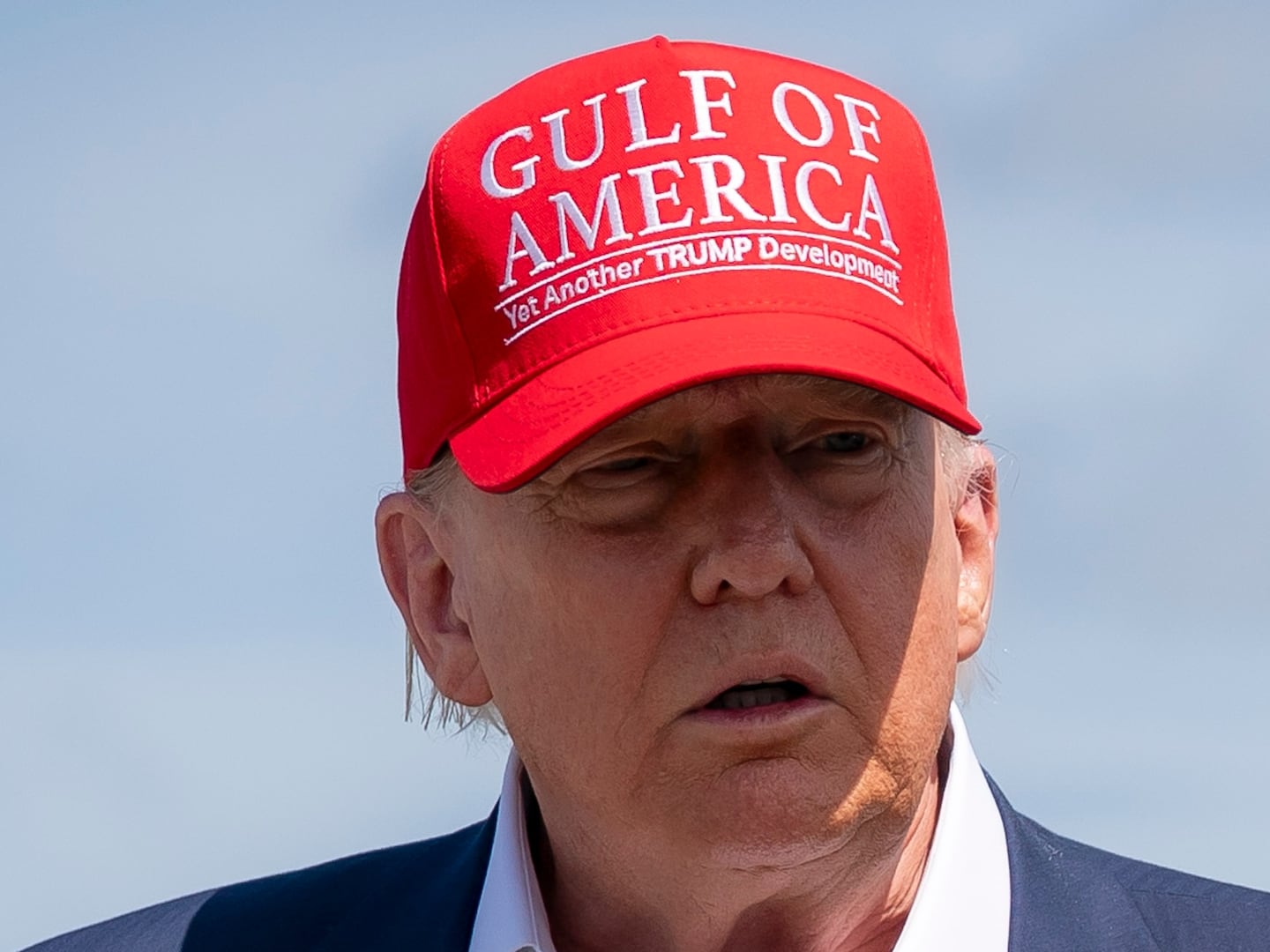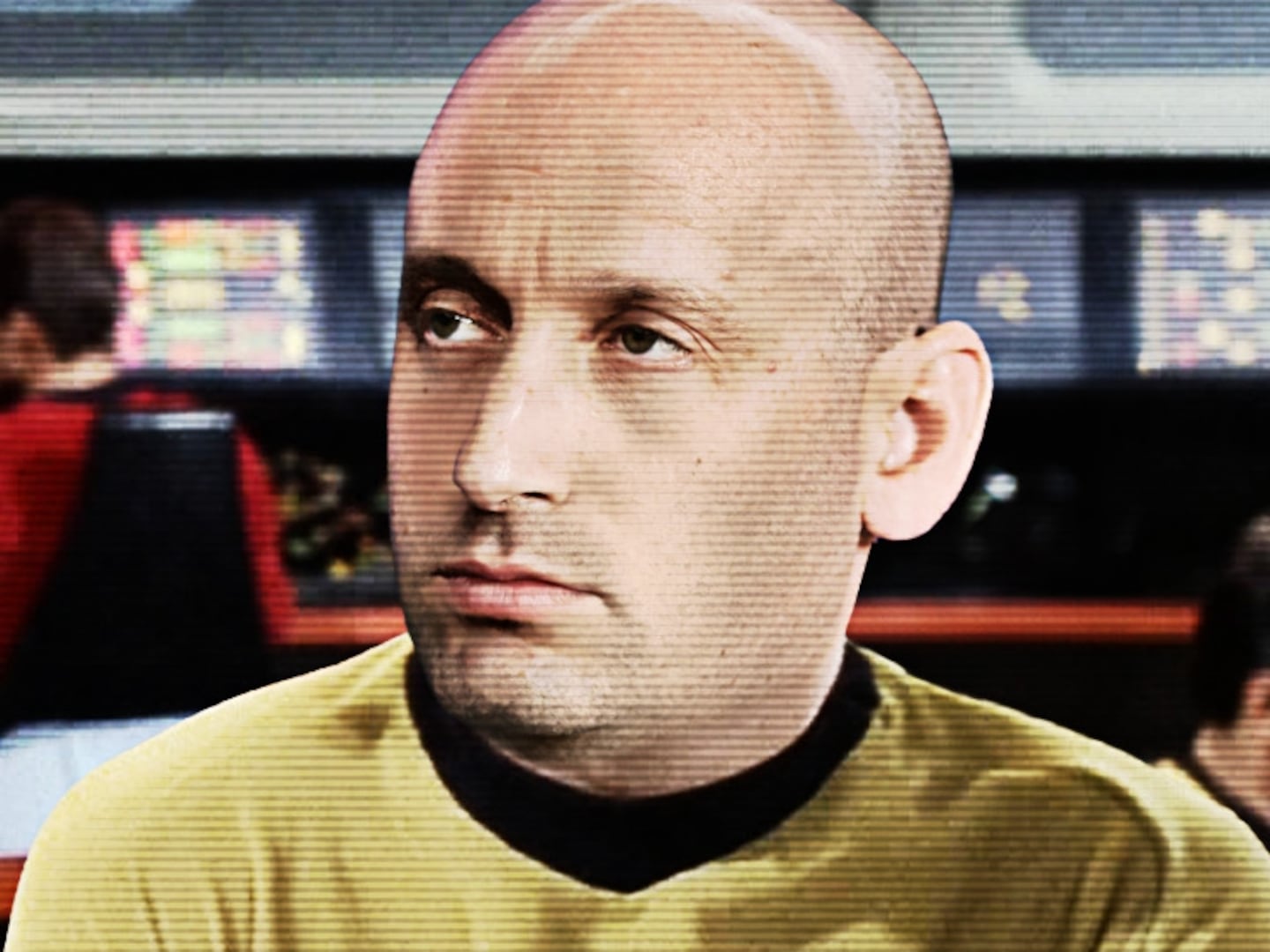The big-money guys must have been feeling bad enough when they got the advance word that all their entreaties were for naught.
To make it worse, Gov. Chris Christie then made the public announcement with the same can-do confidence and brash humor that the big guys were so sure could win over the little people, including at least some of the crazies.

Even as he was definitively declaring he was not going to run for president, even as he was saying “Now is not my time,” he was demonstrating the winning qualities the big guys believed could have put him in the White House.
Christie may have suspiciously liberal views about gun control and immigration, but watch the way he jousts with those reporters and shows them up for what they are!
From a big-guy point of view, Christie may have gone a little far when a reporter inquired about the effectiveness of those who had urged him to run.
“Obviously, they weren’t that good,” Christie joked.
They had been good enough to get him to reconsider. And he had made sure in his speeches to reassure them that he was one Everyman who would look out for the wealthy. A tweet from somebody who attended a private fundraiser in Clayton, Mo., quoted Christie telling the assemblage, “Everybody has the right to be rich in America. That’s what [Republicans] believe.”
And he had continued to come across as such a regular guy that a Midwestern farmer FedExed a plea to his children asking them to persuade Daddy to run for president and earn themselves a place in history.
Such pleas from the little guys may have had as much impact on Christie as the lobbying by the big guys. He had hoped to decide by Sunday, but he was still torn as he reviewed the New Jersey National Guard at the 30th-anniversary military review on Sunday. Maybe he got a touch intoxicated by a foretaste of what it would be like to be the commander-in-chief as five F-16 fighters roared overhead and a Howitzer battery honored him with a 19-gun salute, just two fewer than the 21 accorded a president.
That must have worn off by Monday night, when he came to what he described on Tuesday as “what I’ve always felt was the right decision.” He shrugged off all the pundit talk that it was too late to jump into the race.
“I have a great political team, and they are ready to do whatever I want them to do,” he told the press assembled in the governor’s front office in Trenton.
He insisted that he simply had not felt right about leaving the good people of New Jersey to run for president after serving as their governor for just 20 months.
“I can’t hold both jobs,” he said.
To his right was a painting of former governor Tom Kean, who was making his own first run for the statehouse back in 1977 when a 14-year-old showed up unannounced at his front door in Livingston, N.J. The kid introduced himself as Chris Christie and said he had heard Kean speak at Livingston High School and had come home saying he wanted to go into politics. Christie had kept saying it until his mother had finally told him to get in the car. She had driven him to Kean’s house and stood in the driveway as Christie followed her instructions to ask somebody who knew how to get into politics. Kean had responded by saying he was at that very moment heading out to do some campaigning.
“Come with me,” Kean remembers telling him.
Kean lost that first race, but Christie was hooked, and he must have felt his destiny confirmed as he served as class president through 10th, 11th, and 12th grades. The kind of big supporters he had back then included a kid named Harlan Coben, who several years before had arrived late in the Little League season after suffering a bout of rheumatic fever. Coben had been new, and he had stood there not knowing anybody and feeling profoundly uneasy when the coach’s son came over and stuck out his hand
“Harlan Coben, I’m Chris Christie. Nice to meet you.”
Christie continued to have a radar for setting at ease those whom Coben calls “in a corner feeling uncomfortable.” Christie was also hugely likable, warm, and funny, qualities that served him well in school elections. But when he entered grown-up politics at the most local of levels, he decided that being a fun and empathetic guy was not going to get him elected freeholder in Morris County. He played the game as it had always been played, smearing his opponents by falsely saying they were under investigation. He won and the opponents sued him for defamation, and he ended up apologizing.
Christie’s first big issue was a proposed new jail. A guy raised happily in one of the more modest houses on a street where none of the houses are grand understandably decided that the county did not need a $46 million penal equivalent of a palace. He fired the architect, who also sued him for defamation, and the jail was built for $32 million, saving the county $14 million.
In the midst of his success, he decided to run for assembly, even though he had not served out his first term as freeholder. He was defeated, and Mr. Likable was so disliked that people turned their backs and talked over him when he showed up to make his concession speech. One guy was reported to have walked over to Christie blowing kisses and saying, “Kiss your f--king career goodbye!”
Christie and a politically connected law partner then became big-time fundraisers for George W. Bush. His reward was an appointment as the new U.S. attorney. There was grumbling about his having no law-enforcement experience, but he proved to be particularly good at prosecuting corrupt public officials.
New Jersey Republicans pressed him to run for governor after Jim McGreevey resigned, but he decided the time was not right. He did run four years later and won on a promise of cutting costs without raising taxes, as he had with the jail in Morris County. Christie’s girth might have been a factor against him, but incumbent Jon Corzine ran an ad snidely saying he “threw his weight around.” Folks who might not have voted for somebody overweight declined to vote for a guy who made an issue of it.
By Christie’s account, Corzine deliberately sought to sabotage him fiscally, adding to a huge deficit. Christie began cutting the schools budget, which could not have been emotionally uncomplicated for him: his mother had been a widely respected clerical worker at the Livingston Board of Education, called "the face of the district" in an obituary in 2004. And he himself had been a kind of anti–James Dean, a teenage non-rebel with a cause, active in student government through high school, even on a student advisory panel to pick a new principal. (They chose a candidate because he had worked at Bruce Springsteen’s high school.)
So Christie got particularly wound up when he butted heads with the teachers’ union. He became a YouTube tough guy with a teacher who came to a town-hall meeting and rolled her eyes at him during her 40-minute lunch break. He got a huge reaction, which could not have discouraged him from taking on a heckler at a Meg Whitman event a few days later. What he called “Jersey style” so delighted conservatives that they were willing to overlook that he was hardly a Tea Party type. On top of that, he was proving able to do what he promised budgetwise.
Christie also made clear that he could be counted on to be a defender of the rich. His younger brother, Todd, had gone on from that same modest house to pocket $60 million selling his trading company to Goldman Sachs. And Chris’s wife, Mary Pat, was a managing director at Goldman Sachs.
Other such self-made guys as Ken Langone of Home Depot saw Christie as Wall Street’s guy on Main Street, the one who could take on Obama. They continued to urge him to run for president even as he repeatedly said he was not ready.
“It’s a little overwhelming when the world comes to your door,” his old mentor Tom Kean noted.
At one point last week, Kean was quoted as saying that Christie might run. Others close to him, including his brother, said he would not, but they grew quiet as he continued to ponder.
The tipoff on Tuesday was the venue for the press conference. He would have chosen someplace like Liberty Park, with the Statue of Liberty in the background, if he were declaring himself a candidate for president.
At the appointed hour, Christie stepped up to the podium in the governor’s outer office and began issuing his final no, without so much as taking a breath. He was as likable as he had been as high-school president, and he gave one reporter a light brush-off, just enough of the tough guy to remind everybody of the YouTube videos. He kept up the Q&A until there was no need for an aide to call it quits, as is the custom with other politicians.
He was to the end so funny and assured in saying no that it had to drive crazy the big guys who so wanted him to say yes.






